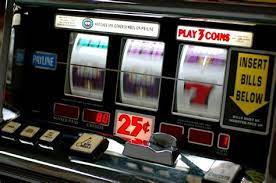The Legal Side of Online Slots: Understanding Regulations and Responsible Gaming

The online gambling industry has witnessed exponential growth in recent years, with online slots emerging as one of the most popular forms of entertainment. As the digital landscape evolves, so do the legal considerations surrounding online slots.
In this blog, we delve into the intricate web of regulations governing online slots and explore the concept of responsible gaming.
Regulatory Landscape:
The legality of slot online varies from country to country, and even within regions of a single country. Understanding the regulatory framework is crucial for both players and operators to ensure compliance with the law. Many jurisdictions have established licensing authorities responsible for overseeing online gambling activities.
For instance, in the United Kingdom, the UK Gambling Commission (UKGC) is a regulatory body that grants licenses to online casino operators, ensuring they adhere to strict standards. Similarly, the Malta Gaming Authority (MGA) is a well-known authority that regulates online gaming in Malta, a hub for many online casino operators.
These regulatory bodies impose conditions on operators, covering aspects such as fair play, security, and responsible gaming. Operators must comply with these conditions to maintain their licenses and operate legally.
Responsible Gaming Initiatives:
Responsible gaming is an integral aspect of the online gambling industry, and operators are increasingly recognizing the importance of promoting a safe and enjoyable gaming environment. Many online casinos have implemented responsible gaming features to help players maintain control over their gambling habits.
Self-exclusion programs allow players to voluntarily exclude themselves from a particular judi online casino for a specified period. This empowers individuals to take a break and reflect on their gaming behavior. Moreover, operators often provide links to gambling addiction support organizations, reinforcing their commitment to player well-being.
Age Verification:
One of the primary legal requirements for online slots and gambling, in general, is age verification. Operators must ensure that players are of legal gambling age before allowing them to access real-money games. Age verification processes typically involve the submission of identification documents, such as a driver’s license or passport.
Strict age verification measures are in place to prevent underage gambling and protect vulnerable individuals. Failure to comply with age verification regulations can result in severe penalties for operators, including the revocation of their gaming licenses.
Fair Play and Random Number Generators (RNGs):
Ensuring fair play is fundamental to the credibility of online slots. Regulatory authorities often require operators to use Random Number Generators (RNGs) to determine the outcome of each spin. RNGs are algorithms that generate unpredictable sequences of numbers, ensuring that the results of online slots are random and cannot be manipulated.
Regular audits by independent testing agencies are conducted to verify the integrity of RNGs and the overall fairness of online slots. This process adds an extra layer of assurance for players, as they can trust that the games are not rigged in favor of the operator.
Cross-Border Regulations:
The global nature of the internet presents a challenge for enforcing and harmonizing online gambling regulations. Players can access online slots from different jurisdictions, and operators may be based in countries with varying legal frameworks. This raises questions about jurisdictional authority and the enforcement of regulations across borders.
To address this issue, some international collaborations and agreements have been formed to facilitate cooperation between regulatory bodies. However, achieving a unified global standard for online gambling regulations remains a complex and ongoing endeavor.
Conclusion:
The legal landscape surrounding online slots is intricate and continually evolving. As the industry expands, regulatory authorities are adapting to address new challenges and ensure a secure and responsible gaming environment. Players should be aware of the regulations in their jurisdiction and choose reputable operators that prioritize fair play and responsible gaming.
For the online slots industry to thrive sustainably, a delicate balance must be struck between providing an entertaining experience for players and implementing robust legal frameworks that protect the interests of both consumers and operators. As technology advances and online gambling becomes more ingrained in modern culture, staying informed about the legal side of online slots is paramount for everyone involved in this dynamic and evolving industry.




